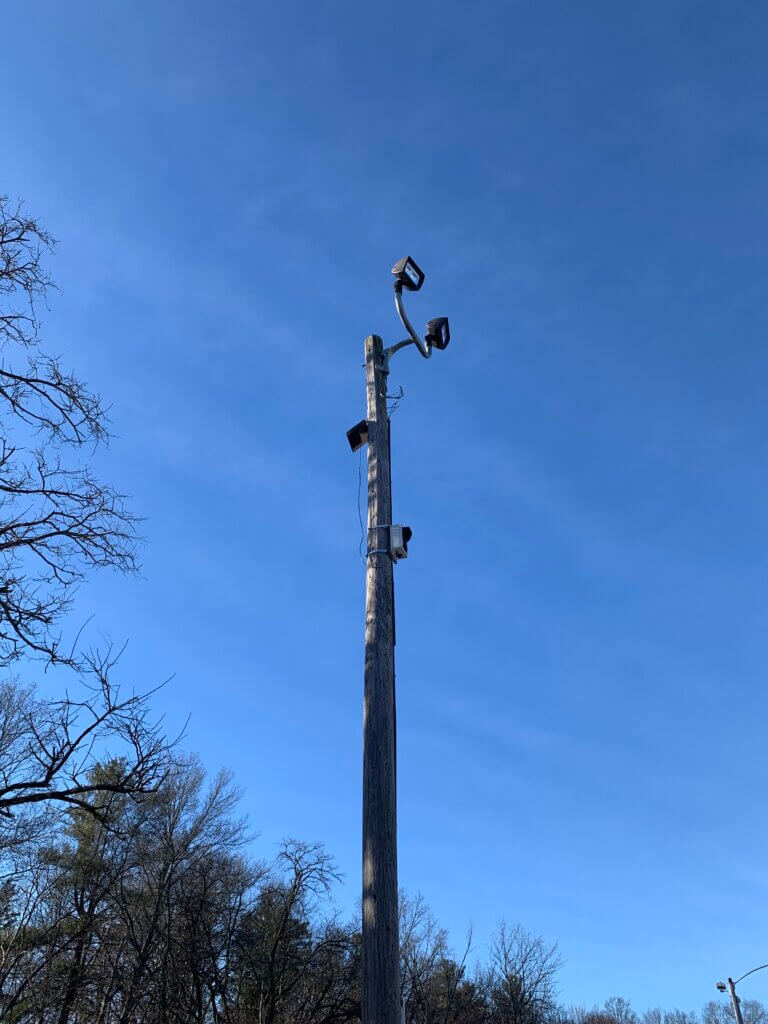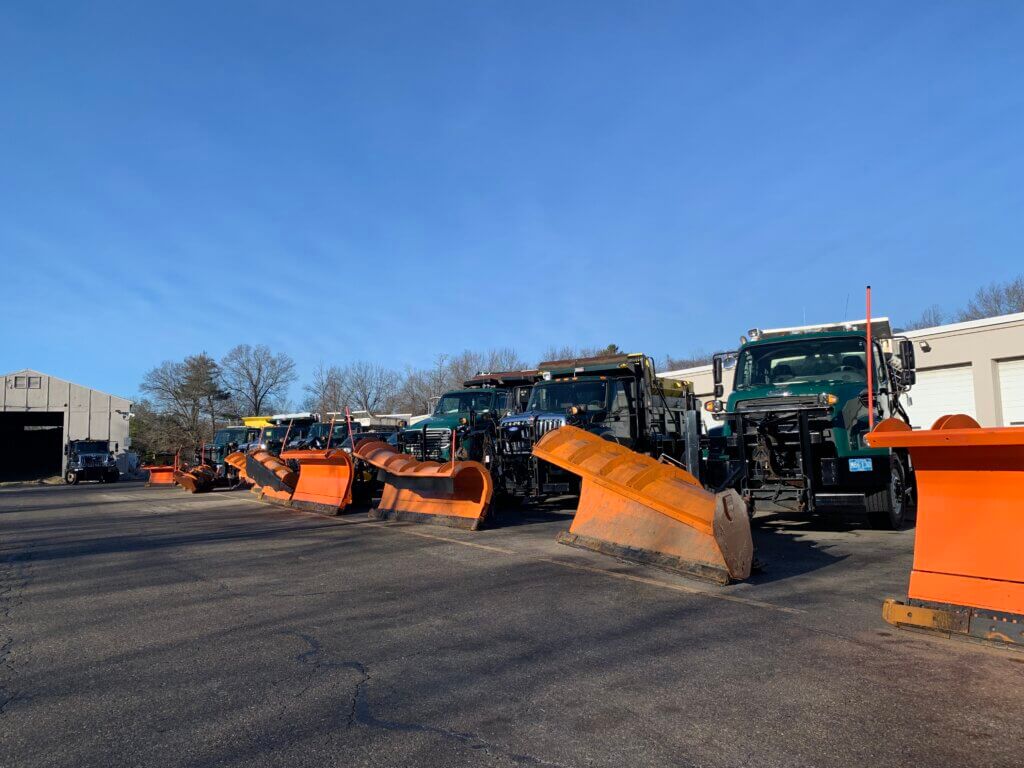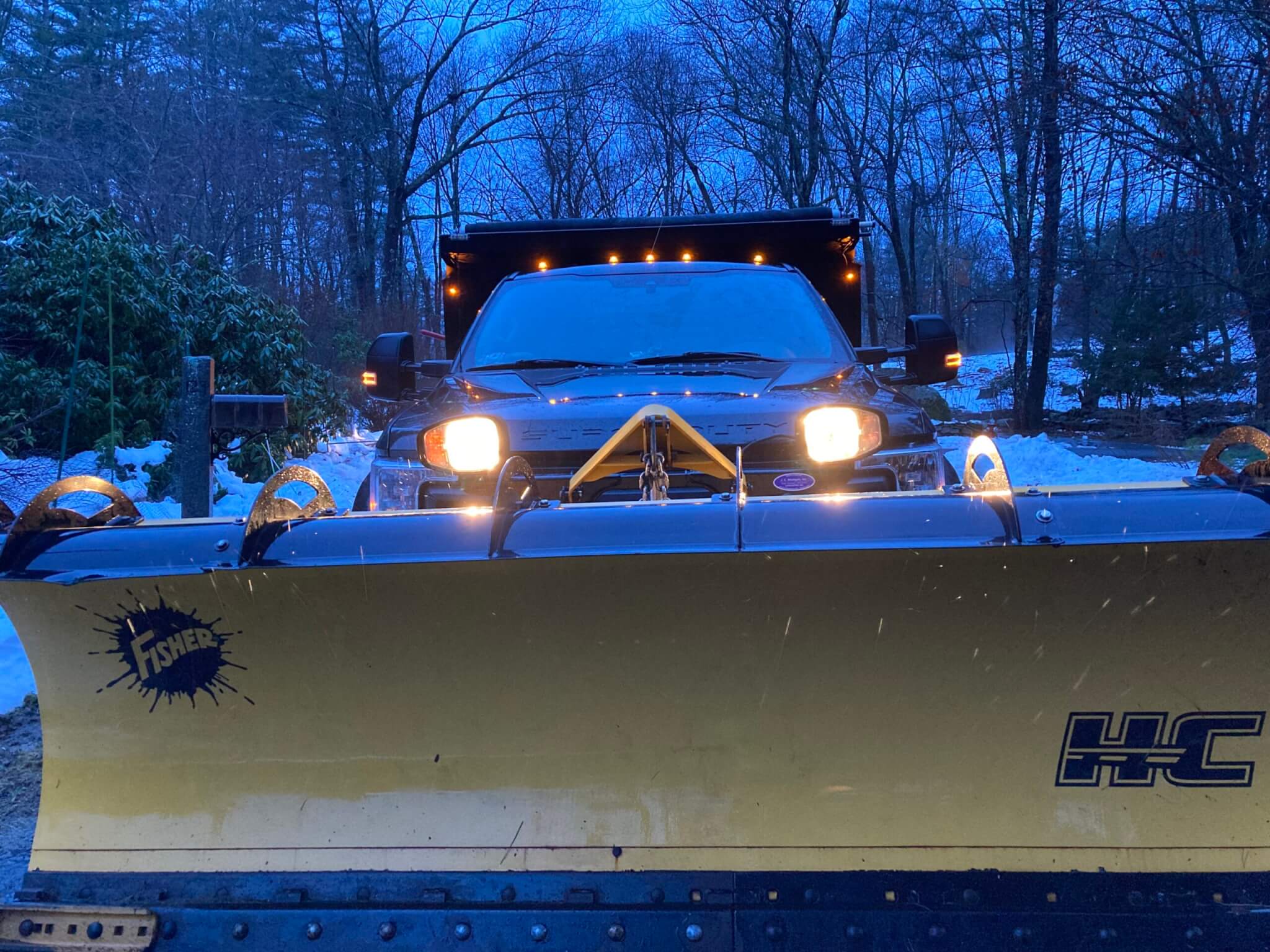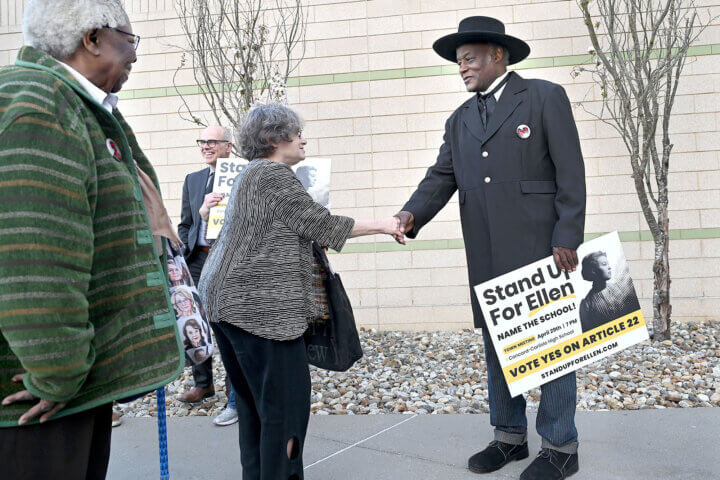
When old man winter arrives, New Englanders know that roads may become dangerous, socked in with feet of snow, or slick with accumulating ice.
“Our top priority is safety,” said Aaron Miklosko, Highway and Grounds superintendent for Concord Public Works.
When or should the department pretreat the roads before a storm? Which areas need to be plowed? Will the forecast be accurate?
Concord uses technology to show real-time data, allowing decisions about road treatment to be more targeted. The town is one of only a handful of municipalities to use a roadway weather information system, Miklosko said.
Monitors, mounted to utility poles in all areas of town, send information about road and air temperature to the office. It might be snowing at a higher elevation while it rains down in low-lying areas like the center.
Tailoring the response saves money. With a yearly cost of about $16,000, “it pays for itself in one event, if otherwise we would’ve set up” to go out on the roads, Miklosko said. “We’re making an educated decision.”
The snow desk, a dispatch center for public works, is open continuously during a storm event. If a resident has a question or concern, they can call (978) 318-3220.
Highway and Grounds works year round to ensure winter operations are efficient. A big part of the effort is maintenance and calibrating machines so that salt is spread at a rate specified by the state Department of Transportation, MassDOT.
When winter storms arrive, they are ready.

Prior to storms that begin with rain and turn to freezing, Concord pretreats the road with road salt and can go out a few hours before the storm.
If the forecast calls for snow only, Concord spreads saltwater brine. It binds to the road surface, preventing ice buildup. The brine uses less salt than road salt but is trickier to use. It will wash off in rain and requires a couple of days of preparation, Miklosko said.
Good winter operations help stimulate economic vitality, he said. Concord removes snow from municipal parking lots, bringing it to the compost center or a lot in West Concord at the Massachusetts Department of Correction.
If plowed snow really starts to build up, Highway and Grounds will work with the town manager’s office to decide whether to remove it from sidewalks and roads.
Front end loaders scoop up the windrows left on the road and the snow is trucked away, creating safer conditions for pedestrians and drivers.
“We have a great team of dedicated employees,” Miklosko said. “Our priority is to provide customer service to the town.”
The town employees are joined by contractors as conditions demand. The contractors have their own equipment, from front end loaders to smaller trucks.
The windrows created by plows can be an inconvenience, he noted. Depending on timing, people who may have already cleared their driveways could get plowed in again.
MassDOT recommends shoveling to the right side of the driveway and waiting until the plow has gone by to minimize impact.
Concord has a mailbox replacement policy. If a mailbox was hit by a plow or damaged by snow coming off the plow, contact Public Works at (978) 318-3220.
The department will work to get a temporary mailbox installed and will help with replacement by providing a standard box on a wooden post or a $40 reimbursement for other types of installations.





